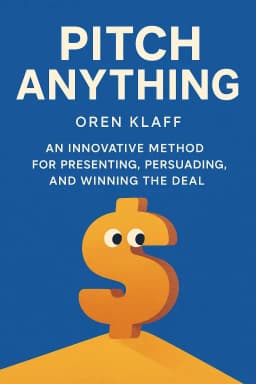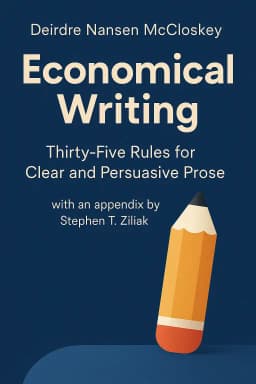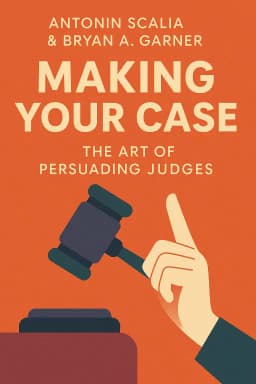
** The Alpha Frame: Decoding the Leadership Secrets of Ali, Bezos, and Disney
Golden Hook & Introduction
SECTION
Nova: Chris, here’s a question for you. What does Muhammad Ali, floating like a butterfly, have in common with Jeff Bezos, building an empire of cardboard boxes? Or even Walt Disney, creating a magic kingdom? They’re in completely different worlds.
Chris: That’s a great question. I mean, on the surface, not much. Genius, maybe? A relentless drive? They all definitely had that. But a common skill? I'm not sure.
Nova: Those are true, but there's a deeper, almost invisible skill they all mastered. It’s the ability to control the reality of any room they walked into. And today, we’re going to decode that superpower using Oren Klaff’s book, "Pitch Anything." It’s a masterclass in persuasion that’s essential for any aspiring leader.
Chris: Okay, now I'm intrigued. "Pitch Anything" sounds like a sales book, but you're framing it as a leadership manual.
Nova: Exactly! Because at its heart, leadership is about persuading people to believe in a future that doesn't exist yet. And to do that, you need to master the social dynamics. So today we'll dive deep into this from two perspectives. First, we'll explore the hidden battle for control in every conversation and how to win the 'frame war.'
Chris: The 'frame war.' I like the sound of that.
Nova: It's a battle that happens in seconds. Then, we'll discuss the ultimate power move: how to stop chasing and start being chased by becoming 'the prize.' Ready to get started?
Chris: Absolutely. Let's do it.
Deep Dive into Core Topic 1
SECTION
Nova: Alright, so to kick us off, what exactly a frame? And why is it a war? In the book, Klaff explains that a frame is your perspective, your point of view, your lens on the world. And when two people meet, their frames collide. The stronger frame always, always absorbs the weaker one.
Chris: So it's like a mental wrestling match happening under the surface of the conversation.
Nova: Precisely. And here's why it's a 'war.' Because your message isn't being received by a logical, rational brain, at least not at first. Klaff says every idea first has to get past what he calls the 'crocodile brain.' This is the oldest, most primitive part of our mind. It's a bouncer at the door of your consciousness, and it only cares about a few things.
Chris: Survival, right? Fight or flight.
Nova: Exactly. The croc brain is constantly asking: Is this new thing dangerous? Is it complicated and going to cost me energy? Is it boring? If the answer is yes to any of those, your message gets ignored. It's literally filtered out before it can even reach the higher-level, problem-solving parts of the brain.
Chris: So you can have the best idea in the world, but if you present it in a way that triggers the croc brain, it's dead on arrival.
Nova: You got it. And the fastest way to trigger it is to lose control of the frame. Klaff tells this incredible story about a young, brilliant CEO named Tom Davis. It was 2001, and Tom was pitching his company to a legendary billionaire corporate raider, Bill Belzberg.
Chris: Okay, high stakes.
Nova: The highest. Tom walks into Belzberg's Beverly Hills office. He's prepared. He has a bulletproof pitch, he's confident, he's ready to go. He starts his presentation, laying out the vision for his company.
Chris: And then the frame collision happens.
Nova: It happens so fast. Belzberg lets him talk for maybe a minute. Then he holds up a hand and says, "Look, I only want to know two things from you. What are your monthly expenses, and how much are you paying yourself?"
Chris: Oof. That's a total pattern interrupt.
Nova: It's more than that. It was a frame kill shot. In that moment, Tom's grand vision, his carefully crafted narrative, his entire reality... it all vanished. The conversation was now about Belzberg's reality: expenses and salary. Tom, the confident CEO, became a flustered kid trying to justify his numbers. His frame was completely shattered. He lost control of the meeting, and the deal was effectively over.
Chris: Wow. That's brutal. But it makes so much sense. It's not even about the idea at that point. As a leader, if I walk into a team meeting with a new vision, and the first thing someone does is change the subject to budget cuts or last quarter's problems... they've just taken my frame.
Nova: Yes! And what happens to your vision then?
Chris: My vision is already fighting for its life before it's even been heard. It's on the defensive. It's being judged by their frame of scarcity, not my frame of opportunity.
Nova: You see how critical this is? If you can't hold the frame, you can't lead.
Chris: It reminds me of what I've read about Socrates. He was a master of this. People would come to him with a question, and he would never answer it directly. He’d ask a question back, a question that forced the other person into frame of logic. He controlled the entire dialogue from the very start, guiding them to the conclusion he wanted them to reach on their own. He never let anyone else set the terms of the debate.
Nova: That's a perfect connection, Chris. Socrates was a master frame controller. He understood that the person who sets the frame, sets the agenda. And once you can hold your frame like he did, you can move to the next level.
Deep Dive into Core Topic 2
SECTION
Nova: The next level is to make your frame so powerful, so compelling, that people are instinctively drawn to it. This brings us to our second key idea from the book: becoming the prize.
Chris: So this is about more than just defending your frame; it's about going on the offense.
Nova: In a way, yes. But it's a very specific kind of offense. It starts with understanding status. Klaff points out that status isn't fixed; it's situational. He gives this great example: a world-famous cardiac surgeon. In the hospital, she is the absolute alpha. Her wealth, power, and expertise give her the highest status. Everyone defers to her.
Chris: Makes sense. She holds life and death in her hands.
Nova: Right. But then, on Saturday, she goes to the golf course for a lesson with the local golf pro. Suddenly, on that driving range, who's the alpha?
Chris: The golf pro. The surgeon's medical degree means nothing there. The pro is the expert in that domain.
Nova: Exactly! The domain changed, and the status flipped instantly. The pro tells the surgeon what to do, how to stand, when to swing. The surgeon is now the student, seeking the pro's approval. The pro holds the status. The key insight here is that if you want to elevate your status, you can redirect people into a domain where you are the expert.
Chris: So you're creating a situation where you are, by definition, the high-status person.
Nova: And that's the foundation for what Klaff calls the "Prize Frame." Most people pitch by trying to prove their worth. "Please invest in my company, it's great!" "Please approve my project, it's important!" You're the one chasing. The Prize Frame flips that entirely. It's the art of making the other person subtly qualify themselves to. The mindset is, "I have this incredible opportunity. Now, I need to find out if you're the right person to bring it to."
Chris: You become the object of the chase.
Nova: You become the prize. So, thinking about the leaders you admire, Chris, who embodies this 'Prize Frame'?
Chris: Muhammad Ali. One hundred percent. It was his entire public persona. He called himself 'The Greatest' before he'd even won the title. He wasn't begging for a championship fight; he was framing it as the world to see him, that the promoters and the networks had to prove the event was worthy of presence. He was always, always the prize.
Nova: That's a brilliant example. He completely controlled the narrative. He made everyone else react to him.
Chris: And you see it with tech leaders too. I've watched old videos of Apple keynotes. Steve Jobs wasn't up there 'selling' a phone. He was revealing the future, and the subtext was that you were just lucky to be there to witness it. The frame wasn't, "Please buy our new product." It was, "We've created something amazing, and now we're deciding who gets to be a part of this revolution."
Nova: Yes! The feeling was that you had to get one before they were gone, that you had to qualify to be part of the 'in' crowd. That's the Prize Frame in action on a global scale. It creates desire and urgency without ever seeming needy.
Chris: And neediness is the ultimate frame killer, right? The book talks about that. The moment you seem desperate, the croc brain smells blood in the water and runs away.
Nova: It's the number one deal killer. Prizing is the antidote to neediness. It projects confidence, value, and high status.
Synthesis & Takeaways
SECTION
Nova: So, when we put it all together, it's this powerful two-step dance for leadership. First, you learn to stand your ground and control the frame of the conversation, so your ideas can actually be heard.
Chris: You have to win that initial battle against the crocodile brain.
Nova: Then, once you can hold a frame, you work on building your status so you the prize. You make your frame the one everyone wants to be in.
Chris: It’s the fundamental shift from seeking approval to commanding attention. That feels like the core of leadership right there. It's not about being the loudest person in the room, but the one with the strongest gravity.
Nova: I love that, 'the strongest gravity.' That's perfect. So for everyone listening, especially aspiring leaders like you, Chris, the homework from this episode is simple. You don't have to go out and try to control a frame tomorrow. Just watch.
Chris: Become an observer.
Nova: Exactly. For one week, become a 'frame detective.' In every meeting you're in, every conversation with friends, every interview you watch of someone like Jeff Bezos or another leader, just ask yourself two questions: Who holds the frame here? And who is the prize?
Chris: That's a great, practical takeaway. Because once you start looking for it, I bet you'll see it everywhere.
Nova: You will. It's the invisible architecture of influence. And recognizing it is the first, most important step to being able to build it yourself.
Chris: From a Disney movie's narrative control to a Jeff Bezos letter to shareholders. It's all frames. This has been incredibly insightful, Nova.
Nova: It's a game-changing way to see the world. Thanks for exploring it with me, Chris.









